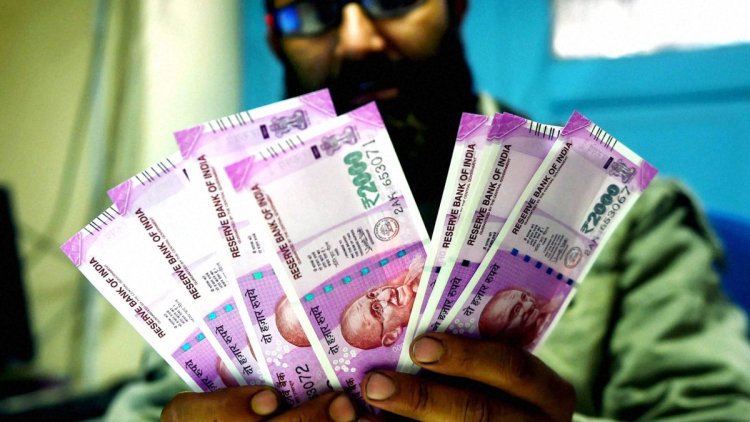Reserve Bank of India Implements Measures to Withdraw Rs 2,000 Notes from Circulation
Reserve Bank of India Implements Measures to Withdraw Rs 2,000 Notes from Circulation: Exchange and Deposit Details

The announcement made by the Reserve Bank of India (RBI) on Friday states that the circulation of Rs 2,000 currency notes will be discontinued. Individuals can choose to deposit their existing Rs 2,000 notes into their bank accounts or exchange them until September 30.
The RBI clarified that Rs 2,000 banknotes will remain valid legal tender. To ensure smooth operations and prevent disruptions in bank branches' regular activities, individuals will be able to exchange Rs 2,000 banknotes for other denominations up to Rs 20,000 at a time, starting from May 23, 2023.
Furthermore, the RBI has instructed banks to halt the issuance of Rs 2,000 banknotes immediately.
If you possess Rs 2,000 notes and wish to exchange them for different denominations, follow these steps to exchange your Rs 2,000 notes:
The RBI has directed banks to offer deposit and/or exchange services for Rs 2,000 notes until September 30, 2023. You can deposit Rs 2,000 banknotes into your bank account or exchange them for banknotes of other denominations at any bank branch. Deposits into bank accounts can be made without any restrictions, following the usual procedures and complying with applicable statutory provisions.
Is there a limit on the amount of Rs 2,000 banknotes that can be exchanged?
The RBI has specified that individuals can exchange Rs 2,000 banknotes for banknotes of other denominations up to a maximum of Rs 20,000 at a time, starting from May 23, 2023, at any bank.
Will Rs 2,000 notes be accepted for regular transactions?
Rs 2,000 notes will remain acceptable for transactions and other payments. However, it is advisable to exchange the withdrawn notes by the end of September.
What should you know when depositing Rs 2,000 banknotes into a bank account?
When depositing the discontinued Rs 2,000 notes into your bank account, you will need to comply with the Know Your Customer (KYC) norms and other relevant statutory requirements.

 PSNN Admin
PSNN Admin 



